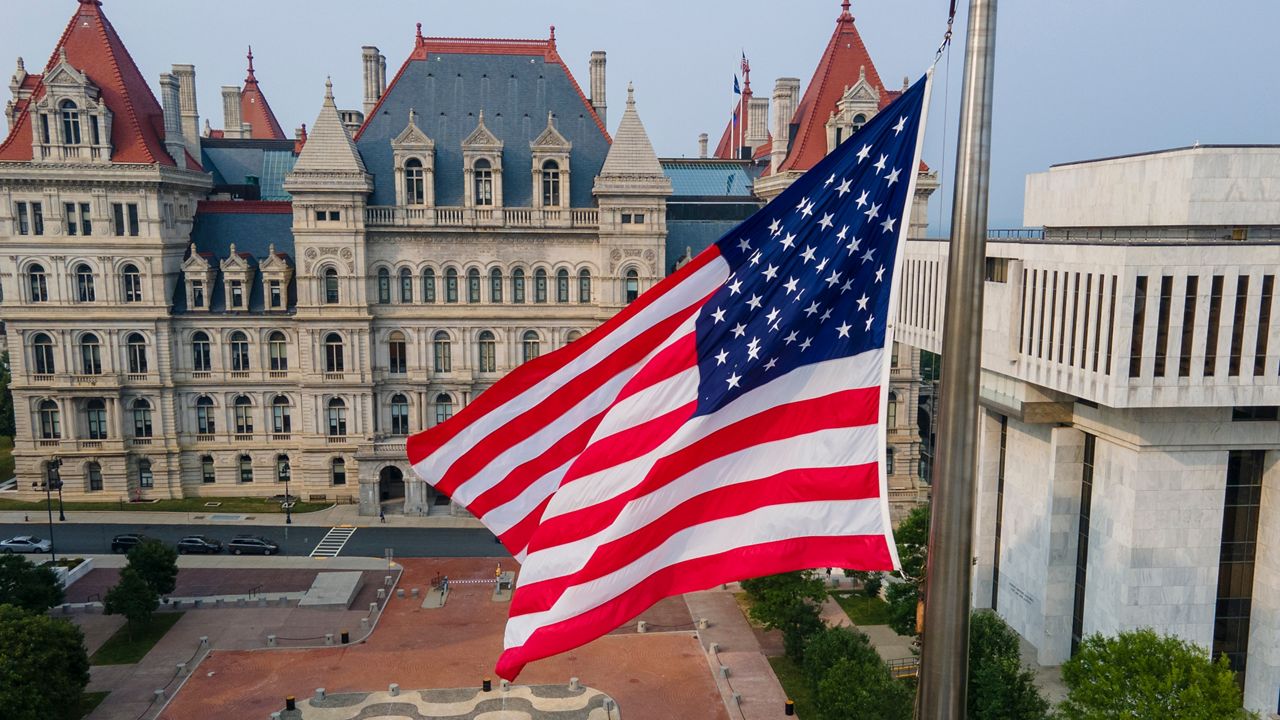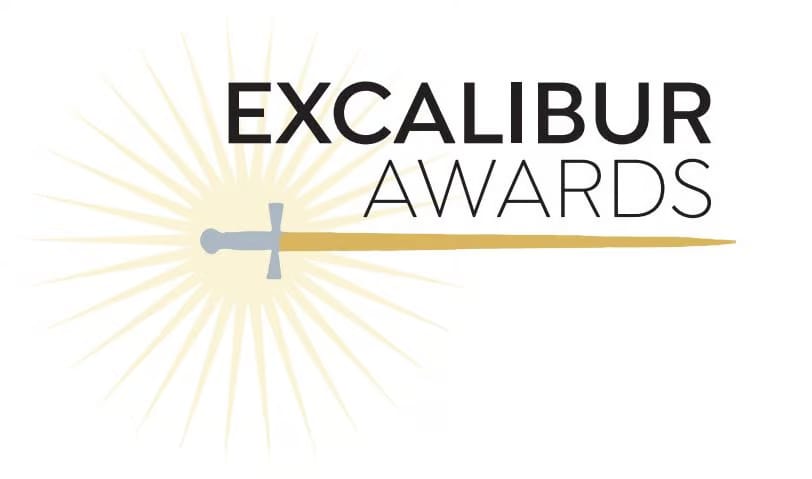- Monday Morning Memo
- Posts
- House Divided
House Divided
NYC Ballot Battle, Mamdani Surges, Funding Showdown
Good morning from New York City, where the Board of Elections voted 7-1 to approve three ballot measures to appear on the ballot in November. Drafted by the Charter Revision Commission and aimed at boosting housing production, the measures are focused on reducing the City Council’s power, specifically the unofficial veto individual council members have over certain land-use decisions within their districts. New York City Council Speaker Adrienne Adams and her colleagues on the City Council have argued the ballot measures are vaguely worded and have threatened to sue, offering in a statement, ”We will take action to protect democracy from Mayor Adams’ dishonest ballot proposals, which would strip Black, Latino, and Asian neighborhoods of their power to secure more affordable housing and community investments.”
There’s only one way to solve New York’s housing crisis: we have to build more housing.
Today’s decision is a victory for working families and a step toward a future all New Yorkers can afford.
gothamist.com/news/housing-m…
— Governor Kathy Hochul (@GovKathyHochul)
10:11 PM • Sep 9, 2025
The decision is a win for Governor Kathy Hochul, who reportedly dispatched one of her closest aides, Karen Persichilli Keogh, to win over the skeptical Democratic BOE Commissioners. In a statement, Hochul said, “There's only one way to solve New York's housing crisis: we have to build more housing. The Charter Revision Commission's proposals will make it easier to build the affordable housing New Yorkers so urgently need. I’m glad the Board of Elections listened to the voices of New Yorkers—myself included—who want to see these critical initiatives brought to voters in November.” From here, the voters will decide if the measures will become law.
.@KaitlynnLisa reports on CoA arguments on Monday regarding the constitutionality of a new state law that will move most local elections to even-numbered years to align with state and federal races. @CapitalTonight
— Susan Arbetter (@sarbetter)
10:38 AM • Sep 9, 2025
Another major issue is winding its way to a conclusion in the Courts. After hearing oral arguments last week, the New York State Court of Appeals will decide the fate of a new state law, moving most local elections to even-numbered years to better align with state and federal elections. The New York State Association of Counties (NYSAC), including Onondaga County, which initiated the lawsuit, opposes the 2023 law, arguing it runs afoul of New York’s designation as a “home rule” state. In a statement, NYSAC’s Executive Director said, ”The thing that’s really the burning question in our mind is a very simple one: what can we do as local government officials if we can’t even set our terms of office? That has now been 'converted' to a matter of state concern. And the Court of Appeals is going to allow that to happen?” While proponents of the change argue it will reduce administrative costs and increase voter turnout, others have raised concerns about the ability of local candidates to compete for airtime and media coverage with statewide and national candidates who will now be running at the same time. Stay tuned for a decision from the State’s highest court. A constitutional amendment that would move the remaining local elections is pending in the legislature.
Jen Lunsford joins Assembly leadership. See her plan to meet 'real needs of New Yorkers'
— Democrat & Chronicle (@DandC)
7:30 AM • Sep 12, 2025
As the 2026 legislative session in Albany inches closer, Assembly Speaker Carl Heastie announced the following leadership appointments after the resignation of North Country Assemblyman Billy Jones:
Deputy Majority Leader: Charles Fall
Assistant Majority Leader: Jen Lunsford
Vice Chair, Majority Steering: Judy Griffin
Chair, Local Governments: Michaelle Solages
Governor Hochul continues to sound the alarm over the impact of federal cuts to Medicaid to New Yorkers, and this time, taking action, announcing the state will transition 1.3 million people currently on the Essential Plan onto the state’s Basic Health Program to preserve coverage for as many residents as possible. In a statement, Hochul offered, “Nearly 1.7 million New Yorkers rely on the Essential Plan for health care—working moms and dads, families living paycheck to paycheck, people doing everything right and still struggling to get by. The Big Ugly Bill forced through by Donald Trump and Republicans puts every single one of them at risk of losing their care. I refuse to stand by while Washington punishes vulnerable New Yorkers.” Still, Hochul warned that many New Yorkers are at risk of losing coverage without further action from the state or federal government, saying, “Even with these steps, 450,000 New Yorkers are at risk of losing their care. That includes 127,000 people represented by New York’s seven Republican Members of Congress, who are abandoning their own constituents to hand out tax breaks for the wealthy. It doesn’t have to be this way. If Republicans give a damn about protecting health care for their constituents, they can act right now to pass a three-year delay of HR1's cuts to health care eligibility and keep every New Yorker on the Essential Plan covered.” Expect this to be a constant refrain for a long time to come.
NEW New York Times/Siena Poll: New York City Mayoral Race
Mamdani, 46% Leads Cuomo, 24%, Sliwa 15%, Adams 9% in Four-Way NYC Mayor Election
sri.siena.edu
#SienaPoll#NYT#NYTSienaPoll#NYC#ZohranMamdani#AndrewCuomo#CurtisSliwa#EricAdams#NYCMayor#ElectionTwitter
— SienaResearch (@SienaResearch)
9:00 AM • Sep 9, 2025
In New York City, new polling shows the mayoral race remaining relatively static, assuming it remains a four-way race. Among the current candidates, a New York Times/Siena College poll found Zohran Mamdani is at 46% support among likely voters, followed by former governor Andrew Cuomo at 24%, Republican Curtis Sliwa at 15%, and current Mayor Eric Adams at 9%. The race would narrow significantly if Sliwa and Adams were to drop out of the race, with Mamdani at 48% and Cuomo at 44%. The race has seen plenty of leaks, rumors, and speculation, but the anti-Mamdani folks are running out of time to change the direction of the race. Even President Donald Trump, speaking on Fox and Friends, appeared to acknowledge that.
Trump predicts ‘my little communist’ Zohran Mamdani will win NYC mayoral race trib.al/3mFauNp
— New York Post (@nypost)
2:48 PM • Sep 12, 2025
In Washington, D.C., Congressional Republicans are beginning to coalesce around the White House’s plan to keep funding flat for federal agencies through January, called a clean “continuing resolution” or CR, to avoid a looming government shutdown at the end of the month. GOP fiscal hawks have favored a longer-term CR to keep funding levels flat, and the Trump administration would prefer another four months of current funding levels rather than negotiate with Democrats on the twelve individual appropriations bills that make up an annual government funding package.
Hakeem Jeffries suggests "clean" continuing resolution is non-starter for Dems
— The Hill (@thehill)
7:26 PM • Sep 10, 2025
Senate Minority Leader Chuck Schumer (D-NY) and House Minority Leader Hakeem Jeffries (D-NY) announced last week that they will not support a clean CR, with Schumer saying, “The bill they proposed can’t get our votes and doesn’t meet the needs of the American people. Plain and simple.” Democrats want to use their leverage to extend government tax credits for many Americans who get health insurance through the Affordable Care Act. Trump is having none of it, saying that Republicans should not “even bother” negotiating with Democrats. “If you gave them every dream, they would not vote for it,” Trump said, adding, “We will get it through because the Republicans are sticking together.” He said Republicans will likely put together a continuing resolution to keep funding the federal government.
Should Democrats in Congress vote with Republicans to keep the government operating or risk a shutdown? Vote in our poll below!
The fighting spirit will be a welcome development for many Democrats disappointed by Schumer’s decision to bail out Republicans on a spending bill earlier this spring. Schumer would not directly comment on the enhanced subsidy demand, but added, “If they try to jam something down our throats without any compromise—without any bipartisan, real, bipartisan discussion—they ain’t going to get the votes, plain and simple.” While the Obamacare subsidies could give Democrats a cause to rally around in a shutdown fight, many rank-and-file members have little interest in bipartisan negotiations after the Trump administration unilaterally canceled $5 billion in funding previously allocated by Congress.
Nonetheless, House GOP leadership is pushing ahead with a plan to put a government funding extension through November 20 on the floor this week.
Thanksgiving CR – NO. I am willing to vote for a CR of any duration—short or long—the least damage to the Republic, but I cannot support one that ends funding right before a major holiday to jam us with an Omnibus. I’ve seen this playbook too many times.
— Rep. Victoria Spartz (@RepSpartz)
8:21 PM • Sep 14, 2025
The bill will be “clean in its scope,” according to Speaker Mike Johnson, who also said, rather hopefully, "I surely hope the Democrats will not try to make this a big, partisan fight.” Johnson also intends to include additional member security funding in light of the recent killing of Conservative commentator Charlie Kirk. The details of that funding remain the final item to sort out. Stay tuned!
What’s fueling the political firestorm?
How can we take down the temperature?
Our Jack O’Donnell @jfodjr is on the line with @TheJoeBeamer on @WBEN’s #Hardline.
Listen to the clip below and full interview starting at 11:35am ➡️ ➡️ audacy.com/stations/wben/…
— O'Donnell & Associates (@odandassociates)
4:09 PM • Sep 14, 2025
Finally… An investment my kids can get excited about! Trading cards from a popular franchise are outperforming the benchmark S&P 500 and even high-growth stocks like Meta. |

Listen on your favorite platform! |  Jack goes “From the Lobby" as he unravels this week's political developments: 🎙️Can Hochul block Mamdani’s tax hikes on corporations & the wealthy? 🎙️Ballot issues in the NYC mayor’s race 🎙️Holdup on Mamdani endorsements 🎙️Will DC Democrats help the GOP keep the government operating? |



Should Democrats in Congress vote with Republicans to keep the government operating or risk a shutdown? |

Do you support maximum age limits for elected officials?

 |  |
 |  |


September 15, 1959: President Dwight D. Eisenhower invited Soviet Premier Nikita Khrushchev to the United States for an official State Visit, marking a historic moment. Khrushchev became the first Soviet head of state to visit the United States. |


 | 'That's Buffalo for You': Visit Buffalo Niagara Launches Multimillion-Dollar Tourism BrandThe goal is to reshape how the rest of the country sees Buffalo. |
Was our Monday Morning Memo forwarded to you? Subscribe here to get it sent right to your inbox.










